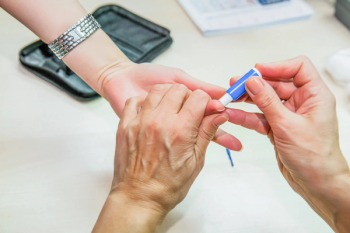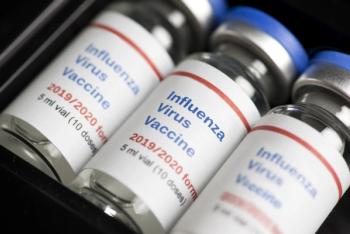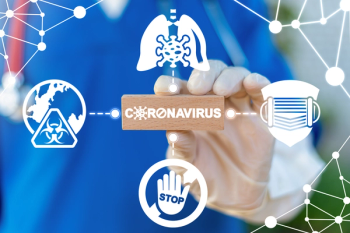
Research could allow the study of long-term HIV infections and the testing of new curative therapies.

Research could allow the study of long-term HIV infections and the testing of new curative therapies.

Findings showed a 34% decrease in the number of mental health services utilized by children under age 19 and a 22% decline in the number of mental health services utilized by adults aged 19 to 64.

Launched in 2020, a diabetes pilot program resulted in a significant improvement in patient outcomes for those enrolled.

The Pharmacy Times® Pharmacy Focus podcast provides the latest industry news and information, thought-leader insights, clinical updates, patient counseling tools, and innovative solutions for the everyday practice and business of pharmacy.

Study examines whether implementing an oral care protocol for general practitioners can improve patient-centered outcomes for individuals with type 2 diabetes.

A recent study also found that weight loss may decrease dependence on medication.

An overview of continuing education and advanced training offerings for pharmacy technicians and what is on the horizon for 2021.


The tool measures brain health based on cognitive performance and may be used in the future to predict the likelihood that an individual will develop memory and thinking problems as they age.

The approval represents the first and only oral sphingosine 1-phosphate receptor modulator indicated for adults with moderately to severely active ulcerative colitis.

Not only are pharmacists drug experts, but the pandemic demonstrated that they can also perform COVID-19 testing and vaccinations alongside physicians and other health care providers.

Lung cancer, the most common cancer type with the highest mortality, can largely be categorized by the genetic mutations that cause it.

The body’s relationship with gut bacteria emerges after birth and in early infancy, during important immunological and physiological development.

Study indicates that teens and adults who use e-cigarettes have increased odds of developing asthma and having asthma attacks.

According to the study authors, 9% of the children receiving the combination therapy did not respond to treatment, compared to 51% of children receiving IVIG alone.

This is the first and only oncology immunotherapy to show positive phase 3 results in the adjuvant lung cancer setting.

As pharmacy professionals battle with their own challenges regarding mental health, the optimal role of psychiatric pharmacists is yet to be defined.

Both health care providers and the general public said skin dryness is a major obstacle for consistent hand hygiene practices.

Previous research indicates that probiotics decrease upper respiratory infections in healthy adults and children, but limited data exist on older, overweight, and people with obesity.

Pharmacy Times spoke with Tomas Villanueva, DO, MBA, FACPE, SFHM, practicing health care provider, and associate vice president for clinical resources at Vizient, about the value of the pharmacist in addressing vaccine hesitancy.

In March, the FDA approved dasiglucagon (Zegalogue) for the treatment of severe hypoglycemia in people with diabetes aged 6 years or older.

Pharmacists can help provide optimal health care to women to improve the quality of their lives by offering advice and education on important areas.

Pharmacy Times spoke with Dr. Mark Pollack, MD, about Mental Health Awareness Month and the latest information on depression/medication adherence.

Pharmacy Times spoke with Tomas Villanueva, DO, MBA, FACPE, SFHM, practicing health care provider, and associate vice president for clinical resources at Vizient, about how hospitals are tailoring their approaches to vaccine hesitancy to address social detriments.

While the exact reason for the decreased immune response in middle-aged adults remains unclear, these findings suggest that this patient population may be continuously susceptible to the 3c2A H3N2 infection, even with immunization.

The investigational therapy RBX2660 has demonstrated positive trends in efficacy and safety for reducing recurrent Clostridioides difficile (C. difficile) infection over 6 months, in a recent study.

Lynlee Burton, head of the Center for Vaccines and Emerging Infectious Diseases at PRA Health Sciences, discusses how the pandemic has impacted the way the United States views the pharmacist within the immunization space.

Jay Lieberman, MD, a pediatric infectious disease specialist and the senior medical director of PRA Health Sciences, discusses how health care professionals should approach discussing issues around vaccine hesitancy with parents.

This month's featured products include dapagliflozin, naloxone hydrochloride spray, and short ragweed pollen allergen extract.

Susan Lang, CEO of XIL Health and former senior executive at Express Scripts, discusses some of the reimbursement issues that have been arising for pharmacies while administering COVID-19 vaccines.